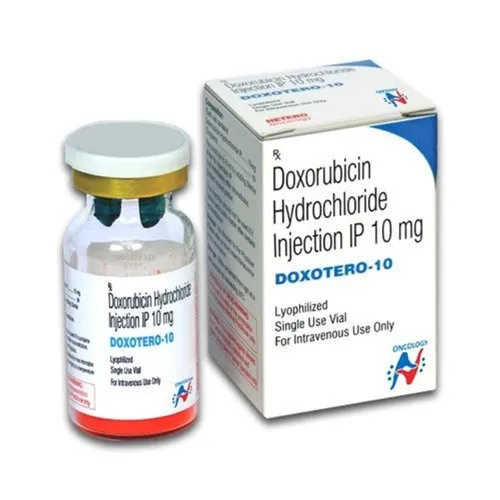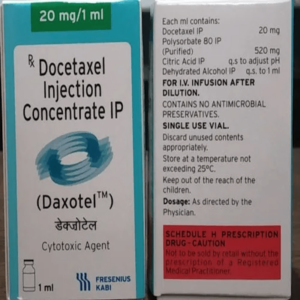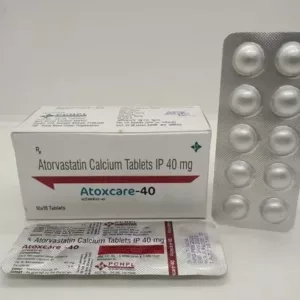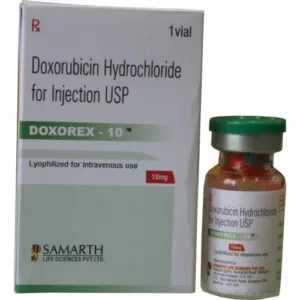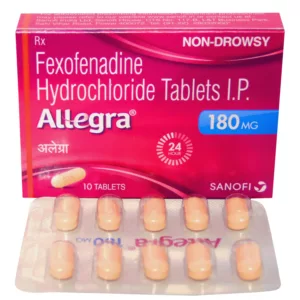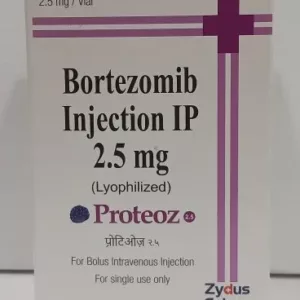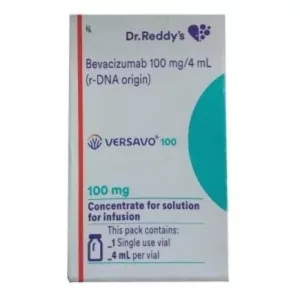Doxorubicin should be administered only into a vein. However, it may leak into surrounding tissue causing severe irritation or damage. Your doctor or nurse will monitor your administration site for this reaction. If you experience any of the following symptoms, call your doctor immediately: pain, itching, redness, swelling, blisters, or sores in the place where the medication was injected.
Doxorubicin may cause serious or life-threatening heart problems at any time during your treatment or months to years after your treatment has ended. Your doctor will order tests before and during your treatment to see if your heart is working well enough for you to safely receive doxorubicin. These tests may include an electrocardiogram (ECG; test that records the electrical activity of the heart) and an echocardiogram (test that uses sound waves to measure your heart’s ability to pump blood). Your doctor may tell you that you should not receive this medication if you have an abnormal heart rate or if the tests show your heart’s ability to pump blood has decreased. Tell your doctor if you have or have ever had any type of heart disease, a heart attack, or radiation (x-ray) therapy to the chest area. Tell your doctor and pharmacist if you are taking or have ever received certain cancer chemotherapy medications such as cyclophosphamide (Cytoxan), daunorubicin (Cerubidine, DaunoXome), epirubicin (Ellence), idarubicin (Idamycin), mitoxantrone (Novantrone), paclitaxel (Abraxane, Onxol), trastuzumab (Herceptin), or verapamil (Calan, Isoptin). If you experience any of the following symptoms, call your doctor immediately: shortness of breath; difficulty breathing; swelling of the hands, feet, ankles or lower legs; or fast, irregular, or pounding heartbeat.
Doxorubicin can cause a severe decrease in the number of blood cells in your bone marrow. Your doctor will order laboratory tests regularly before and during your treatment. A decrease in the number of blood cells in your body may cause certain symptoms and may increase the risk that you will develop a serious infection or bleeding. Tell your doctor and pharmacist if you are taking or have received azathioprine (Imuran), cyclosporine (Neoral, Sandimmune), methotrexate (Rheumatrex), or progesterone (Provera, Depo-Provera). If you experience any of the following symptoms, call your doctor immediately: fever, sore throat, ongoing cough and congestion, or other signs of infection; unusual bleeding or bruising; bloody or black, tarry stools; bloody vomit; or vomiting blood or brown material that resembles coffee grounds.
Doxorubicin may increase your risk for developing leukemia (cancer of the white blood cells), especially when it is given in high doses or together with certain other chemotherapy medications and radiation (x-ray) therapy.
Tell your doctor if you have or have ever had liver disease. Your doctor may tell you that you should not receive this medication or may change your dose if you have liver disease.
Doxorubicin should be given only under the supervision of a doctor with experience in the use of chemotherapy medications.
